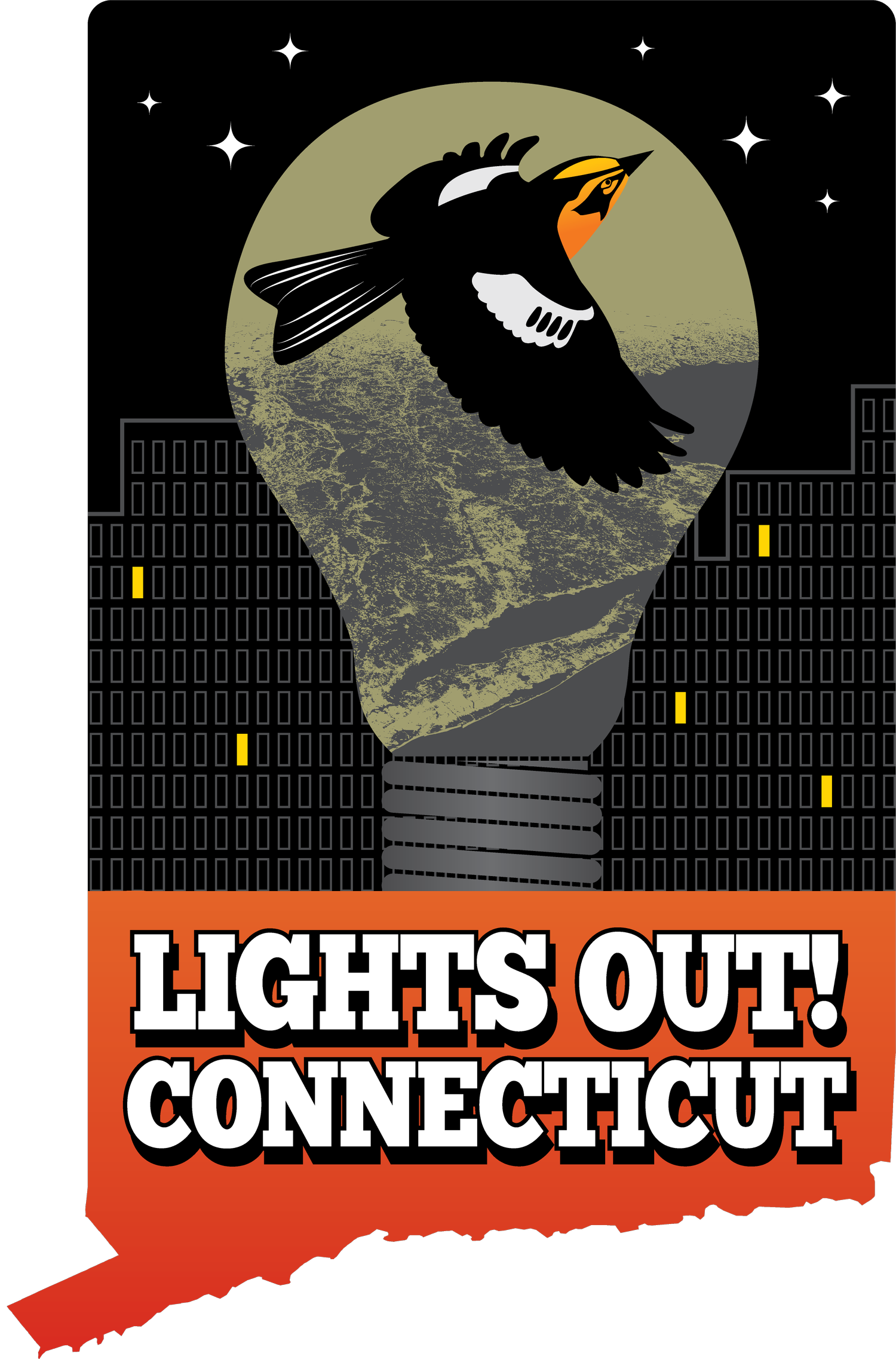Connecticut Passes “Lights Out” Law to Protect Birds
Connecticut Warbler by Ryan Sanderson/Macaulay Library
Today, Gov. Ned Lamont signed a bill aimed at protecting birds and the night sky in Connecticut from the harmful effects of light pollution. Act 23-143 requires all state-owned buildings to dim nonessential outdoor lights after 11pm year-round for birds. It also directs the CT Code and Standards Committee to consider a change to the lighting requirements in the State Building Code.
Every year, light pollution contributes to the death of millions of birds. Many migratory birds such as songbirds and sandpipers, as well as seabirds like Ospreys, that migrate at night are exposed to light pollution in our cities and towns, with major increases in nighttime lighting over the last 50 years. Artificial light can impact the timing of migration and other seasonal bird behaviors.
Connecticut joins only a couple of states in the nation, including Illinois and Minnesota, to have a comprehensive Lights Out law to protect migratory birds from light pollution.
“This law is a major step forward in protecting birds ~ and all of us ~ against light pollution,” said Craig Repasz, Co-Chair of Lights Out Connecticut, a statewide initiative of the Menunkatuck Audubon Society. “We're very fortunate to live in a state that values our natural resources, our birds, our health, and the night sky by taking steps to combat light pollution.”
After a similar bill failed last year to get out of committee, it was reintroduced by Rep. Ann Hughes (D-Easton, Weston and Redding) and then carried by the Environment Committee, with 10 of its members co-sponsoring the bill. This year, the bill passed both chambers unanimously.
"I not only applaud the passage of this bill as Co-Chair of the CT Animal Advocacy Caucus, but also as a volunteer that worked under federal permit ‘herding’ endangered sea turtle hatchlings distracted by artificial light back to sea. Limiting to the utmost the human factor is crucial to protect biodiversity," said Rep. David Michel (D-Stamford), an early co-sponsor of the bill.
The state Office of Fiscal Analysis estimates the bill will save the state of Connecticut at least $1.3 million per year. And Lights Out Connecticut estimates it could prevent as much as 4.4 million pounds of CO2 from being released unnecessarily into the environment. (That’s the equivalent greenhouse gas emissions of over 440 gas-powered cars driven for one year.)
“This law is unique. It simultaneously addresses two of the biggest threats facing our environment today, biodiversity loss and climate change,” said Meredith Barges, Co-Chair of Lights Out Connecticut.
Organizing to pass the bill was a combined effort of Lights Out Connecticut bringing together organizations across the state, including Audubon Connecticut, Connecticut Audubon Society, Connecticut Ornithological Association, CT Chapter of Dark Sky, New Haven Bird Club, Pollinator Pathway, and CT chapter of the Sierra Club Foundation, and many others.
“We’re going to celebrate passage of Public Act 23-143 with a Strawberry & Firefly Festival on June 30 featuring a bird walk and a bird-themed sing along,” said Barges. “All are invited to help us celebrate this victory for the birds and the night sky!”
* * *
About Lights Out CT
Lights Out Connecticut is a statewide coalition of residents, property owners, businesses, nonprofits, and officials in Connecticut working together to protect migratory birds by reducing unnecessary artificial light during peak bird migration (spring: April 1–May 31 and Fall: August 15–November 15). As an initiative of the Menunkatuck Audubon Society, it educates and organizes people to build awareness about the threat of light pollution and the simple steps that we can take immediately “with the flip of a switch” to support birds and the natural environment. Learn more at www.lightsoutct.org
MEDIA CONTACTS
Meredith Barges, Co-Chair, Lights Out Connecticut
Meredith.barges@yale.edu
617-792-1304
Craig Repasz, Co-Chair, Lights Out Connecticut
crepasz@hotmail.com
203-745-6683

